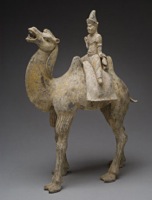Role
Origin
French rôle, literally, roll, from Old French rolle
Definitions
- 1a (1) : a character assigned or assumed <had to take on the role of both father and mother> (2) : a socially expected behavior pattern usually determined by an individual's status in a particular society
- b : a part played by an actor or singer
- 2: a function or part performed especially in a particular operation or process <played a major role in the negotiations>
Description
A role (from the French rôle, and sometimes so spelt in English) or social role is a set of connected behaviours, rights and obligations as conceptualised by actors in a social situation. It is an expected or free or continuously changing behaviour and may have a given individual social status or social position. It is vital to both functionalist and interactionist understandings of society. Social role posits the following about social behaviour:
- The division of labour in society takes the form of the interaction among heterogeneous specialised positions, we call roles.
- Social roles included appropriate and permitted forms of behaviour, guided by social norms, which are commonly known and hence determine the expectations for appropriate behaviour in these roles.
- Roles are occupied by individuals, who are called Actor.
- When individuals approve of a social role (i.e., they consider the role legitimate and constructive), they will incur costs to conform to role norms, and will also incur costs to punish those who violate role norms.
- Changed conditions can render a social role outdated or illegitimate, in which case social pressures are likely to lead to role change.
- The anticipation of rewards and punishments, as well as the satisfaction of behaving prosocially, account for why agents conform to role requirements.
Roles may be achieved or ascribed or they can be accidental in different situations. An achieved role is a position that a person assumes voluntarily which reflects personal skills, abilities, and effort. An ascribed role is a position assigned to individuals or groups without regard for merit but because of certain traits beyond their control, and is usually forced upon a person.
Roles can be semi-permanent ("doctor", "mother", "child"), or they can be transitory. A well-known example is the sick role as formulated by Talcott Parsons in the late 1940s. In the transitory "sick role", a person is exempted from his usual roles, but is expected to conform to transitory behavioural standards, such as following doctors' orders and trying to recover.
For many roles, individuals must meet certain conditions, biological or sociological. For instance, a boy cannot take the biological role of mother. Other roles require training or experience. For instance, in many cultures doctors must be educated and certified prior to practising medicine.
Role development can be influenced by a number of additional factors, including social, genetic predisposition, cultural or situational.
- Societal influence: The structure of society often forms individuals into certain roles based on the social situations they choose to experience. Parents enrolling their children in certain programs at a young age increases the chance that the child will follow that role.
- Genetic predisposition: People take on roles that come naturally to them. Those with athletic ability generally take on roles of athletes. Those with mental genius often take on roles devoted to education and knowledge. This does not mean that people must choose only one path, multiple roles can be taken on by each individual (i.e. Evelyn can be the point guard on the basketball team and the editor of her school newspaper).
- Cultural influence: Different cultures place different values on certain roles based on their lifestyle. For instance, soccer players are regarded higher in European countries than in the United States, where soccer is less popular.
- Situational influence: Roles can be created or altered based on the situation a person is put in outside their own influence.
Roles are also frequently interconnected in a role set, that complement of role-relationships in which persons are involved by virtue of occupying a particular social status. For example, a high school football player carries the roles of student, athlete, classmate, etc.[1]
